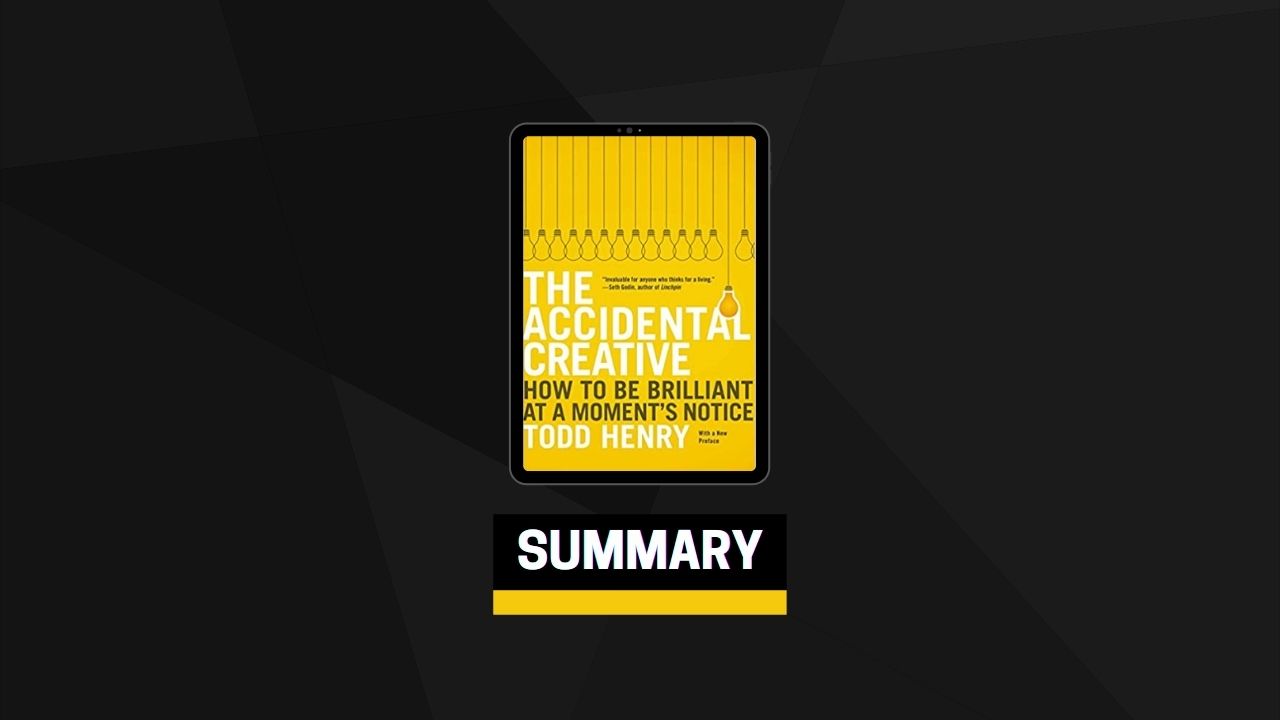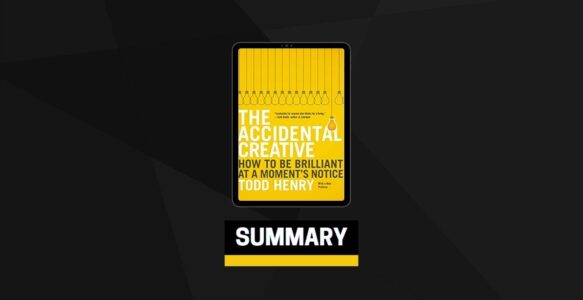Creative Rhythm
To unleash your creative potential now and thrive over the long term, you need to establish your own rhythm—one that is independent of the pressures and expectations you face each day. This Creative Rhythm will provide you with the stability and clarity to engage your problems head-on.
#1 Focus
If we could harness the sum total of wasted energy each day in the workplace, we could probably power the earth for a year. There is so much ineffective work because there is often a lack of clarity around what we’re really trying to do. In order to create effectively, you need a clear and concrete understanding of your objectives.
#2 Relationships
One of the most powerful sources of creative inspiration and rejuvenation is other people. Unfortunately, many successful creatives are haphazard about their relationships and only intentionally build on them when the stars align or when it’s otherwise convenient or expedient. When you go “outside yourself,” it frees you up and unlocks latent parts of your creativity. If you want to thrive, you need to systematically engage with other people, in part to be reminded that life is bigger than your immediate problems.
#3 Energy
Simple time management is not enough. It does you no good to micromanage your time down to the last second if you don’t have the energy to remain fully engaged for that time. To make the most of your day, you need to establish practices around energy management.
#4 Stimuli
The quality of the output of any process is dependent on the quality of its inputs, and this holds true for the creative process. I call creative inputs “stimuli” because they stimulate creative thought. Despite their importance, remarkably few people are intentional about the kinds of stimuli they absorb on a day-to-day basis. If you want to regularly generate brilliant ideas, you must be purposeful about what you are putting into your head. As the old saying goes, “Garbage in, garbage out.”
Hours
Time is the currency of productivity, and how you handle it will ultimately determine your success or failure. But in order to really thrive, you need to shake yourself of our collective obsession with time efficiency and learn instead to focus on effectiveness. You need to ensure that the practices that truly make you a more effective creator are making it onto your calendar.
Unhealthy Assumptions
It’s easy to assume that because something has always been done a certain way, that must be the one and only right way to do it. We sometimes develop the assumption that because a system or method brought us success in one instance, it will always do so. Or we may assume that because something didn’t work in one instance, it will never work under any circumstances. Any of these assumptions can, over time, be disastrous to our creative process because they limit how we look at problems.
A theory advocated by brain scientist and founder of Palm Computing Jeff Hawkins in his book On Intelligence contends that our minds function by constantly predicting what will happen next and then comparing these predictions with what we actually experience. In doing so we develop patterns that make our future predictions more accurate, a library of experiences against which we can validate new information. This allows us to make many decisions in our life quickly, often based upon hunches and with very little information.
While this capacity is helpful in allowing us to assimilate new information and experiences quickly and usefully, it can also mire us in mental ruts that prevent us from seeing opportunities that are obvious to others. Instead, we see only the world through the lens of our assumptions, whether they’re true or false. False assumptions can limit the options we have at our disposal as we attempt to generate ideas.
Whole-Life Planning
Each and every second, we encounter millions of stimuli in our environment, but we are conscious of only a few at any given time. Right now you are likely feeling the weight of this book (or your e-reader) in your hands, the pressure of your chair on your rear, and the temperature of the air around you. But chances are you weren’t thinking about any of these before I called them to your attention. That’s because the only way you are able to survive as a human is by selectively ignoring stimuli that aren’t immediately relevant.
The Fallacy of Compartmentalization
Every area of our life is hardwired to every other area. It is impossible to perform a task in one sphere and not have it affect another. Energy we put toward a work task is energy we can’t put toward a personal project. Similarly, every personal commitment we make, even if it’s just a commitment to think about something, requires energy that will not be available when it’s time to focus on our work.
How does this affect our ability to generate ideas? When we are in a very busy time at work, one in which we’re required to generate a lot of ideas in a short amount of time, we need tremendous amounts of energy and focus. But many of us make commitments and expend energy on other, less critical projects thoughtlessly during these times without considering the consequences. We don’t realize that each commitment we make affects every other. We fail to plan ahead and take into account the creative energy that will be required by our work during a specific week and continue to make commitments, plan meetings, or allocate time to work on unrelated projects.
Eliminate Less Effective Activity
We all live with the illusion that we can have it all. This illusion is sold to us in the media; we are bombarded by ads and the news with images of people who accomplish superhuman feats of work without sacrificing anything in the process. And it doesn’t help that when we look around it seems like many people around us are living this “have it all” dream as well. They take a significant role at work, lead a few charitable initiatives, are active in their family life, and always seem to have a story about some weekend project they’ve been tinkering with on the side. If we’re honest, encountering these people can make us feel like we’re simply not pulling our weight as a human being.
Do you want to know how these people are capable of accomplishing so much? It’s likely because (1) they are projecting an image of extreme productivity that doesn’t match reality, (2) they are overextending themselves and are about to crash, or (3) they’ve learned the secret of energy management, and especially the practice of pruning. They are concentrating their energy and creative efforts on a select group of activities that provide them with the maximum amount of productivity. And because creative insight and productivity are cumulative, they continue to maintain forward momentum as long as they are mindful of their energy.
If you want to have the energy to creatively engage with the important things, you need to carefully choose your creative priorities. We each have a threshold for how many creative problems we can effectively manage at a given time. Taking on any additional obligations or commitments will decrease your overall effectiveness, and removing too many will mean you’re settling for less than your full potential. You want to feel stretched but not overextended.
Experience: Exploring Your World
Much has been written regarding the importance of play to our growth and development. Play is the primary way children learn, and recent research has shown that play can contribute significantly to the learning of adults as well. Play helps us maintain emotional stability, too, which can be important to our overall energy level and capacity for good work.
In his recent book Play, author Stuart Brown argues that “play is the stick that stirs the drink. It is the basis of all art, games, books, sports, movies, fashion, fun, and wonder—in short, the basis of what we think of as civilization. Play is the vital essence of life. It is what makes life lively.” As we grow older, Brown believes, we tend to weed out any activity that isn’t immediately productive or profitable. We eliminate play because it’s not expedient to our immediate needs. In doing so, we turn our back on a primary tool for creative inspiration and growth.
Many of us are caught in the same routines and patterns day after day and week after week. We rarely venture outside these routines because they have proven effective for us. While it’s admirable to be disciplined and focused, we don’t want to leave great creative insights on the table simply because we’d rather stay in our comfort zone. We must deliberately build new, different, and challenging experiences into our lives. This means setting aside time to put ourselves in stimulating and even purposefully uncomfortable situations so that our minds are forced to see the world in new ways.
Being Inflexibly Flexible
Life will change and priorities will shift. This is the nature of creative work. As quickly as ideas are formed and put in motion, the entire playing field will often change and require new insights, new executions, and maybe even different team members to be added to our efforts. This is why the strategy of regularly reviewing your practices and asking whether they are truly aligned to your priorities is so important.
Some may be tempted to ignore this advice because it seems too obvious or irrelevant. I’d like to challenge you that life is too precious to allow for even a week of effort wasted due to being absent from the wheel. Once you get off course, a lot of energy and extra focus is required to bring you back to where you want to be. That’s effort that could be used instead for projects you’d like to initiate or to generate insights you need for your work.
Once you’ve established deep patterns in your life around the practices, you’ll likely notice that insights and ideas are emerging that you’d not expected. This is because you are no longer living reactively but are instead filling your life with more of what really matters to you and piques your interest. You are finding Creative Rhythm, and that is a great place to be.


